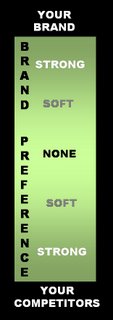The "Envelope", The "Box" And Other Fictitious Boundaries Of Human Thought
 Why Do We Relentessly Use Restrictive Metaphors To Explain Creativity?
Why Do We Relentessly Use Restrictive Metaphors To Explain Creativity?
By David Miranda
I am a big fan of the human race, particularly those members whose creativity have changed and shaped the lives of the rest of us in so many different and diverse areas - the arts, science, medicine, architecture, transportation, human rights, technology, and, yes, business.
The names of these people, past and present, are too many to list here, but they all have one thing in common - they were creative thinkers who had to battle the inertia and resistance of their ideas from those whose comfort zone was the status quo. History continues to repeat itself although we always hear rhetoric to the contrary.
I have attended countless marketing meetings, conferences and seminars where marketing executives and gurus have encouraged the attendees to "think outside the box" or "push the envelope" to create products and services that provide a strategic competitive advantage for their firms or clients.
What is this "box" or "envelope"? Simply stated, it is the sacred cow - the status quo. Here lies the hypocrisy. Encourage new thinking but hang on tightly to the way we currently do things.
In any successful enterprise today, there should be no status quo, no comfort zone. The status quo is a terminal illness if left untreated. Relentless innovation is the answer. Innovate or die.
Need some examples? Local newspapers, passenger trains, typewriters, vinyl records, barber shops, milkmen, travel agencies, local bookstores, mom and pop hardware stores, door-to-door sales, dial-up Internet services, etc. etc. etc. All represent businesses that clung to the status quo too long to save themselves.
Ladies and gentlemen, there is no "box" or "envelope". That's why they call it "thinking". So don't think outside "this" or try to "push" beyond "that". Just think and you'll find better solutions than those who play in "boxes".




 For They Create A Better World
For They Create A Better World

 The Shameful, Arrogant, Unfathomable Behavior Of The Self-Entitled
The Shameful, Arrogant, Unfathomable Behavior Of The Self-Entitled


